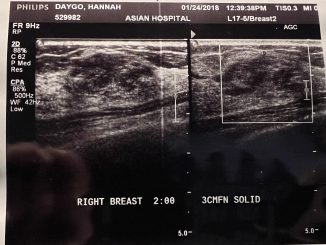
[dropcap]N[/dropcap]ursing is perhaps one of the most altruistic professions a person can enter.
It is a vocation that calls for empathy, compassion, commitment, passion, skill, selflessness and humanity. Student nurses endure four exhausting, demanding years of university and placement so that they can help those in need.
A profession that is composed of the brightest elements of humanity is subjected to the toughest challenges. Student nurses enter a system that is not only incredibly challenging, but employment after graduation is left to mere chance.
Last year, research showed that 70 per cent of nursing interns were approached by recruitment firms abroad, while only a third were offered jobs in Irish hospitals.
“If you’re put in a position where you’re looking after someone’s loved one who’s sick and you want to make a difference to them, you want to be that person to help contribute to somebody going home, well and
happy, to their family,” said Emma Murphy, a third year student nurse in DCU on why she entered the course.
“And, I suppose, growing up close to my granddad, and, he’s like, older, I feel like when he’s old enough that he can’t look after himself, that I might be able look after him, after he looked after me for so many years.”
On placement, student nurses work 35 hours a week. The work is extremely taxing, both physically and emotionally, yet it is unpaid. They receive a commuting levy of €20, despite it often costing between €30 and €50 per week.
“You get eight weeks of theory and then you’re back on placement. We’re paying €3,500 to work for free. It’s something like 1,200 hours we’re doing this year, and then we get a €20 travel check, which is just a slap in the face.”
Often, student nurses need to do part-time work on their days off to cover their living expenses. However, while the roster for placement is supposed to be circulated two weeks in advance, it is often only circulated a few days before it begins, making it difficult to provide employers with their availability to work.
“What’s getting me about this semester is that I’m in debt and paying bank overdraft fees to cover my student fees, and what am I paying for? The luxury of being free labour, covering the gaps in the hospitals where there is nursing
and HCA staff shortages. Working 35 plus hours for free and then trying to work on your days ‘off’ just to pay for the costs of placement; petrol, car park, lunches, etc,” said Emer O’Connor, another third-year student nurse in DCU.
The stress doesn’t end with placement, as student nurses must commit to academic work too. When on placement, student nurses are given a practical assessment record (PAR). This involves a student nurse doing a comprehensive
self-assessment of what they have learned on placement.
Third-year student nurses receive two days off from placement, but have to contend with assignments during this time. Combined with part-time work at the weekend, the chances of a social life disintegrate. A student nurse’s life often becomes one of isolation and exhaustion.
“Having zero social life because friends work opposite shifts to you during the week. Then you are working on the weekends, so you hardly ever see your friends or family. Also, the lack of respect is awful, given your roster on the
Monday for that week, doing ‘scut work’ for other nurses. It’s not fair,” said Emilie Aucher, a third-year student nurse in the university.
A study from the British Journal of Nursing shows us that nursing students tend to be high in the personality traits agreeableness, conscientiousness and extroversion. These characteristics are perfect for their profession in theory, but these traits are in danger of being extorted in practice.
“I had to go home last week, I had two days off, and I didn’t put myself into work, because every day I come home from placement, I was ringing my mam and crying on the phone. Sometimes you’re like; is it even worth it? You’re so
tired and you don’t get any thanks for it, and all you want to do is cry,” said Emma Murphy.
According to the Irish Nurses and Midwifery Organisation (INMO), 80 per cent of student nurses would consider staying in Ireland if offered a full-time position, yet only 16 per cent receive this offer. Out of the 70 per cent which are approached by overseas agencies, 30 per cent are offers from the NHS in the UK, whom almost only offer full time positions.
“It’s so far-fetched, but even if you’re getting the smallest bit of money for the work you’re doing. You wouldn’t even want minimum wage, just the smallest amount of money to get you by, so that you don’t have to work when
on placement,” explained Murphy.
Recruitment and retention are problems that plague nursing, with the IMNO currently voting on whether or not to go on strike because of it. The General Secretary of the IMNO, Phil Ní Sheaghdha, has said that hospital overcrowding has become worse, reaching up to 500 people per day.
Nurses are leaving their home country, not because they lack compassion, but because there is simply little chance of employment. This leaves our sick and injured in an impossible situation.
“I have no intention of staying in this country once I’m qualified. There’s no point staying in a country that doesn’t respect you… not the government anyway. If you want to have a better quality of life, you have to emigrate. I’ll
be gone once I finish,” said Murphy.
Once graduated, newly qualified nurses are faced with an awful dilemma; help those abroad, and prosper, or help those at home and suffer.
David Kelly
Image credit: The Irish Times



